
While waging a genocidal campaign in the Gaza Strip for over 14 months, the Israeli Occupation Forces (IOF) are accelerating the seizure of Palestinian land and the establishment of new settlements and outposts. These actions impose new realities on the ground, altering demographic and planning landscapes, and accelerating the annexation plan.
According to PCHR researchers, the Israeli authorities have recently intensified land confiscations and Palestinian home demolitions in the West Bank. They have also intensified the construction of settlement roads, expanded existing settlements, and established new settlements and outposts.
Field data regarding major settlement projects between Bethlehem and occupied East Jerusalem indicate that Israeli authorities aim through road projects and settlement expansions to annex settlement blocs, starting with Gush Etzion settlement, south of Bethlehem, extending to Jerusalem. This effort includes settlement clusters west and north of Bethlehem, under the so-called “Greater Jerusalem” plan, isolating many Palestinian communities hemmed in by the separation wall from the west.
On 10 December 2024, Israeli authorities issued an order to confiscate 94 dunams of land in the Khallet Semaan, northwest of Bethlehem, for the expansion of the Route 60 bypass road and the establishment of a bus station and pavement of another road for Gilo settlement, which sits on lands from the Al-Walaja and Beit Jala areas. This road and station will cater to settlements like Gilo and Har Gilo, connecting western Bethlehem’s settlement blocks with Jerusalem via a road leading to Gush Etzion.
Naim Abu Samaan (59) stated to PCHR’s researchers that his family owns approximately 18 dunams of olive groves in the Khallet Semaan area of Beit Jala, near the tunnel checkpoint. The area has been closed off for years due to IOF’s measures since 2000. He explained that his family had repeatedly attempted to access their land by applying for permits or coordination, but all requests were denied by the Israeli authorities. The family learned of the land confiscation decision through a notice posted by Israeli authorities near the site. In response, they filed an objection with the relevant civil administration authorities, alongside other landowners in the area, such as Abu Hadwan family, who owns 27 dunams.
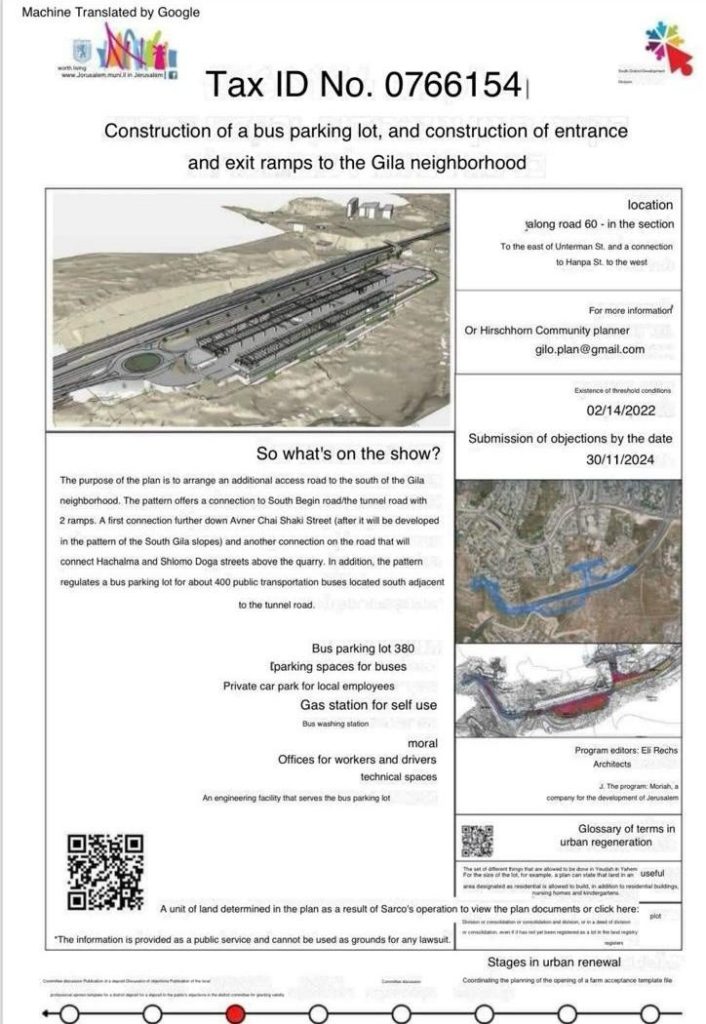
A photo of the plan and the issued order that was placed on Palestinian-owned lands
As part of efforts to impose new realities in the area, Israeli Finance Minister Bezalel Smotrich announced1 on 14 August 2024, the establishment of a new Israeli settlement on lands belonging to the city of Bethlehem. Smotrich described the connection of Gush Etzion to Jerusalem through the creation of a new settlement as a “historic moment,” emphasizing that “No anti-Israel or anti-Zionist decision will stop the development of the settlement”.
It was decided2 to establish new settlements by the Israeli government at the end of June 2024, legalizing five illegal outposts in the occupied West Bank. Among these is the “Nahal Heletz” (also known as Neve Ori Farm), an outpost located in the Al-Makhrour area west of Bethlehem.
According to Israeli plans, the new settlement, Nahal Heletz, will cover 602 dunams of land belonging to Beit Jala and Battir, west of Bethlehem, within the settlement cluster referred to by Israelis as “Gush Etzion”. This cluster comprises 11 settlements with a combined population of approximately 80,000 settlers.
The targeted site for the settlement is situated between Cremisan Valley and Al-Walaja village to the east, and Battir village to the west, in the Al-Makhrour area. Al-Makhrour is the only remaining green space in Bethlehem following the threats of isolation and division facing Cremisan Valley due to the annexation wall and settlement expansion, which have consumed the land and cut it off from its owners.
The location of the new settlement poses a significant threat to the geographical continuity of Palestinian communities in the area. It will create a connecting link between this new settlement and the Gush Etzion settlement cluster, further isolating Palestinian communities. This expansion undermines Palestinian residents’ livelihoods by confiscating their lands and severing their access to essential resources.
According to PCHR’s field documentation, the new settlement is located 500 meters away from Battir village and with its establishment, it creates a buffer zone between Bethlehem and its western villages “Husan and Battir”, aiming at disconnecting the
Palestinian communities in the area.
The settlement is being established on land that UNESCO3 has classified as a World Heritage Site.
It is worth noting that settlers established4 an outpost in early September 2019 on land they had seized in the area near Beit Jala and Battir, west of Bethlehem. This outpost was set up just 70 meters away from the home of the Palestinian Qassia family. The Israeli authorities later demolished the family’s home, along with a nearby restaurant they operated, under pressure from the Jewish National Fund (JNF).
As part of its efforts to impose new realities in the region, the Israeli occupation authorities began, in mid-2023, expanding the road connecting the Gush Etzion settlement bloc, south of Bethlehem, to the Nahal Route checkpoint leading to Jerusalem. This expansion involves land confiscation orders targeting privately owned Palestinian lands on both sides of the Route 60 bypass road. The aim is to link all settlement clusters south of Bethlehem to those in the north through connecting roads leading to Jerusalem. According to documentation by PCHR researchers, construction on these road expansions is ongoing.
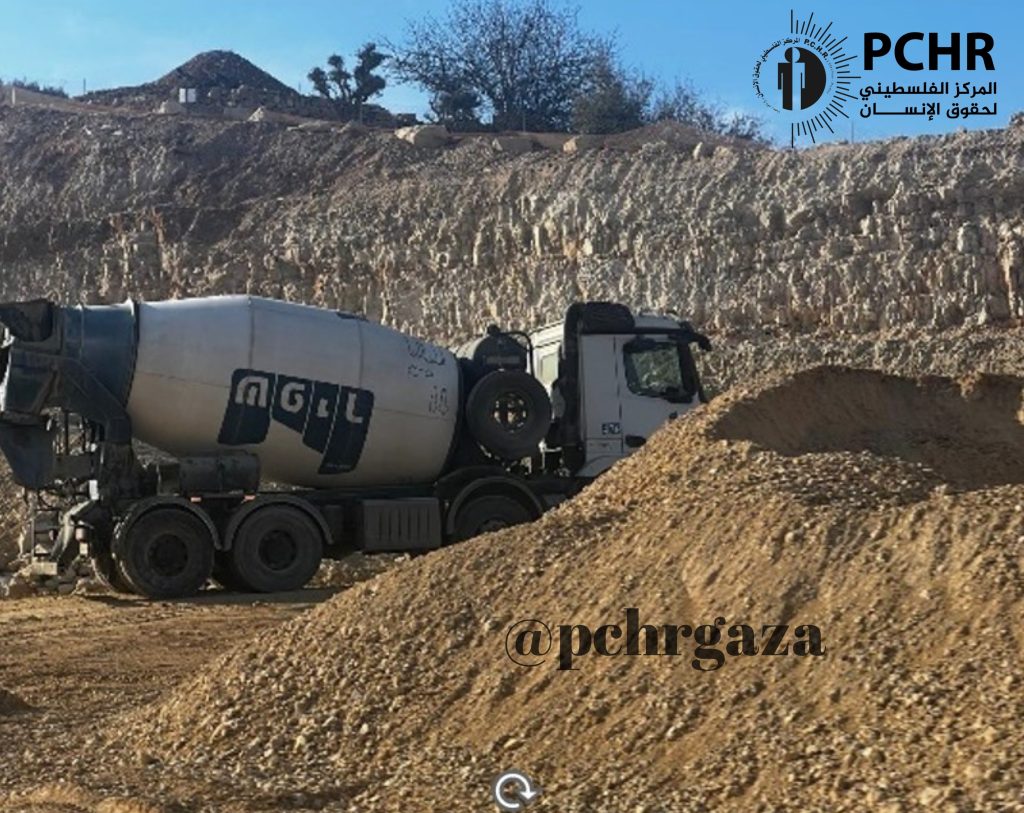
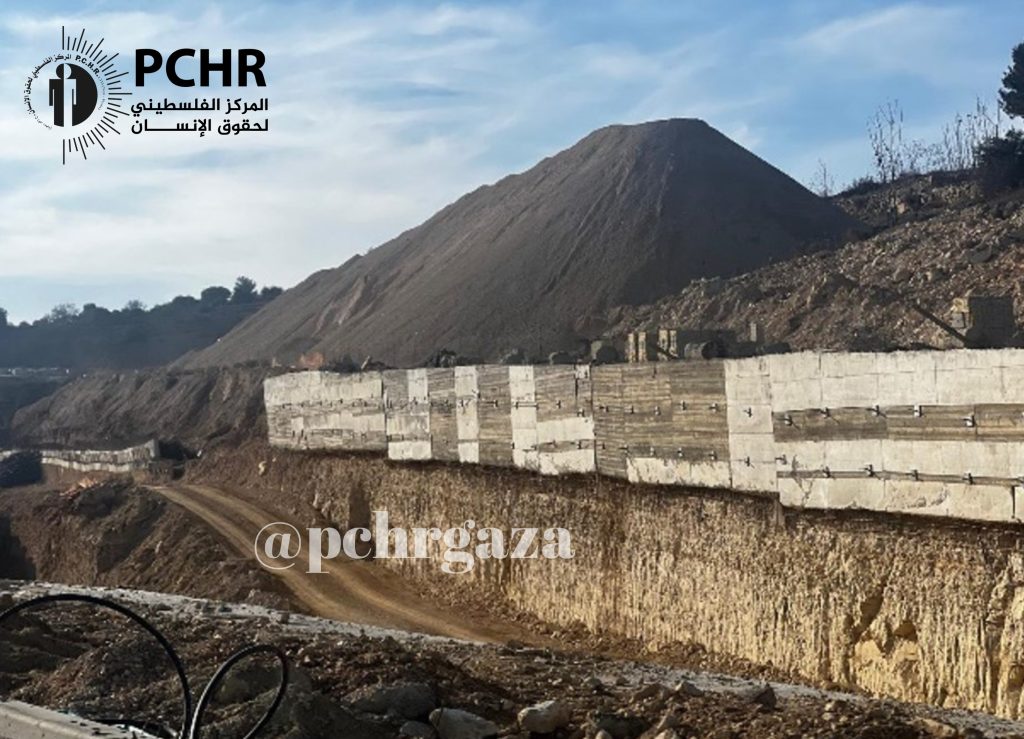
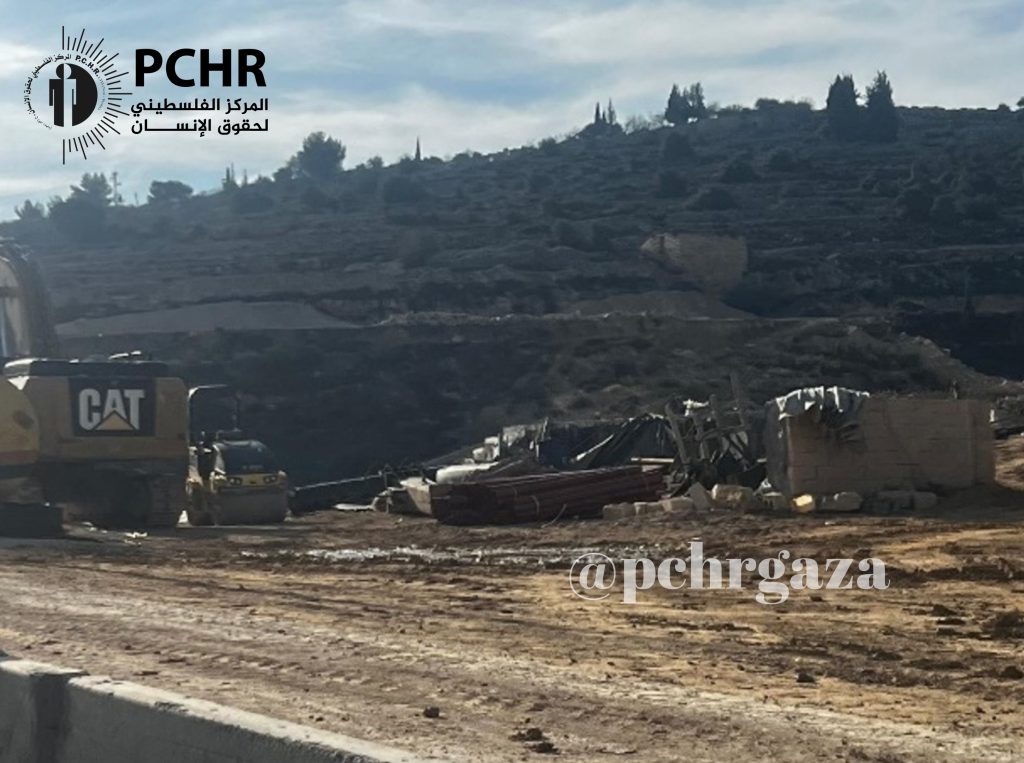
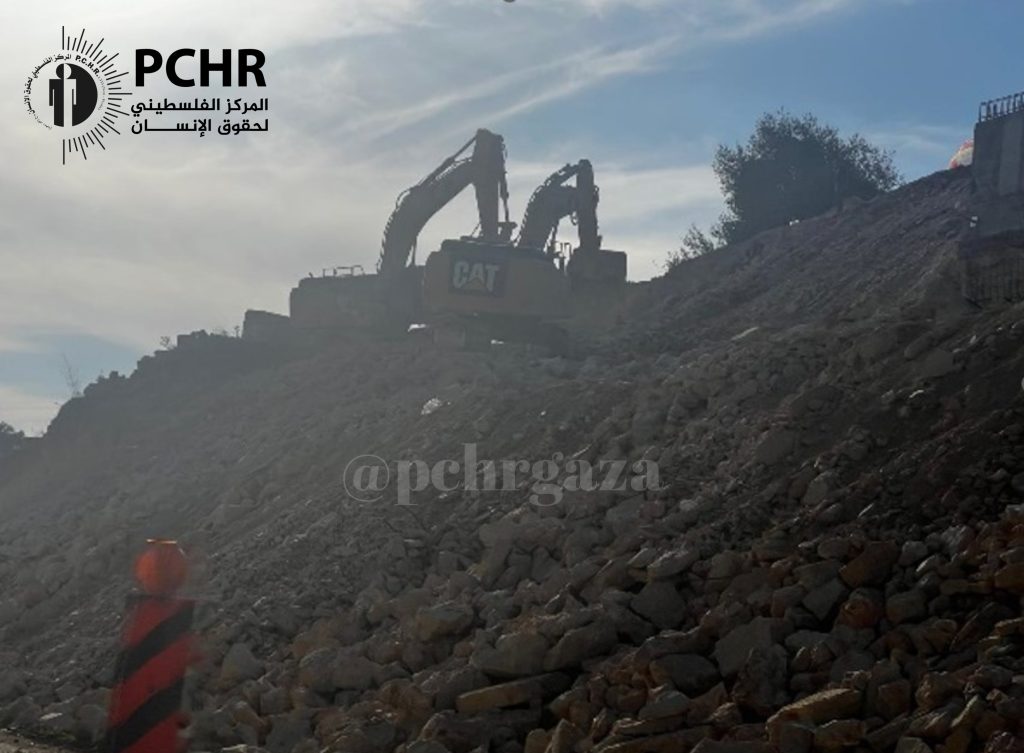
Photos of the ongoing work on the road linking Gush Etzion settlement and Gilo Tunnel, South of Jerusalem, taken by PCHR’s researcher on 24 December 2024.
These actions are part of the aggressive campaign led by the Israeli Civil Administration, targeting Area C in the West Bank, including Bethlehem, with home demolitions and land confiscations. Since October 2024, Israeli authorities have demolished five homes and eight commercial and agricultural structures, as documented by PCHR researchers.
These measures reflect the extremist Israeli government’s intentions for the coming phase, focusing on implementing the annexation of the West Bank. Israeli Finance Minister Bezalel Smotrich openly stated5 in November 2024 that Donald Trump’s election as President of the United States presents an opportunity to annex the occupied West Bank. Smotrich revealed that he had already instructed his ministry to prepare for the annexation. During a press conference ahead of a meeting with his Religious Zionism Party in the Knesset, Smotrich declared, “the time has come to apply [Israeli] sovereignty to the settlements in Judea and Samaria (the biblical term by which some Israelis refer to the occupied West Bank).”
The Palestinian Centre for Human Rights (PCHR) condemns the expansionist settlement policies, which include land confiscation, home demolitions, and the forced displacement of Palestinian residents to establish settlements and outposts—actions that constitute war crimes under the rules of international law.
PCHR calls on the international community to fulfill its responsibilities in stopping Israeli crimes, including settlement activity. It urges the international community to compel Israel to reverse its policies of land seizure and imposition of realities on the ground that fragment Palestinian cities into isolated cantons surrounded by settlements and Israeli checkpoints. Furthermore, PCHR urges the Prosecutor of the International Criminal Court (ICC) to issue new arrest warrants against Israeli political and military leaders involved in settlement crimes.